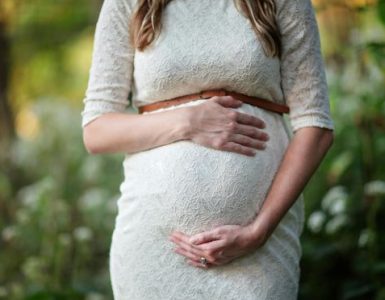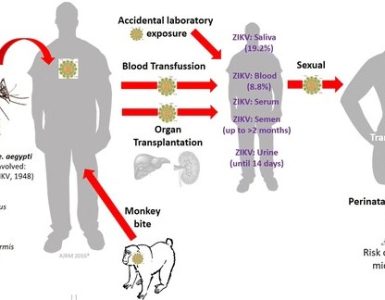 The effectiveness of the measles vaccine has been well established, but now researchers have discovered that the vaccine may offer protective effects far beyond what we thought.
The effectiveness of the measles vaccine has been well established, but now researchers have discovered that the vaccine may offer protective effects far beyond what we thought.
Measles of course is well known as a serious and potentially fatal or disfiguring childhood illness, but studies have also shown that children appear to be at a higher risk of contracting other diseases for several months or even years after measles infection. That’s because researchers suspect measles, like several other infections and sometimes even cancer, can severely impact the body’s immune system by, in euphemistic terms, making it forget prior infections. This obviously lowers the body’s defensive capabilities and thereby puts children at risk of other, sometimes serious, diseases at a time when a child is already weak. But does the measles vaccine protect against that extra susceptibility, too?
With that question in mind, researchers at Princeton University decided to analyze data from medical records obtained from Denmark, the United Kingdom and the United States, giving them information on immunizations going back as far as the 1960s when measles vaccinations first started in the UK. To compare the measles vaccine’s possible impact on the immune system, the study’s authors looked at information prior to vaccines beginning and after they had become routine. The researchers then observed whether there was a relationship between the number of measles cases and the number of kids who then went on to die from other diseases. If those numbers changed significantly after the introduction of the measles vaccine, then the researchers could say it is likely that the vaccine has an effect that protects children from other diseases by virtue of not letting the immune system be compromised.
A pattern soon emerged with the researchers finding that yes, on average, children are at a greater risk of mortality as a result of other infections like those related to pneumonia or diarrhea for up to 28 months after measles infection.
So what about after the measles vaccine’s introduction? As expected, the researchers found that not only did measles cases go down, but the risk of mortality in vaccinated children that was linked to other common infections also went down. But here’s the thing: the risk of mortality for any child who did not receive the measles vaccine did not appear to go down. So, not only does not vaccinating a child against measles subject them to the possibility of that infection, this study suggests it could subject them (and all the people that cannot be immunized for whatever reason) to a greater likelihood of mortality as a result of other infections in the two to three years after contracting measles.
“The work demonstrates that measles may have long-term insidious immunologic effects on the immune system that place children at risk for years following infection,” said author and infectious disease immunologist and epidemiologist Michael Mina. “The work also demonstrates that, in these highly developed countries prior to the introduction of measles vaccine,measles may have been implicated in over 50 percent of all childhood infectious disease deaths.”
The researchers wanted to make doubly sure that they were observing measles and its power to suppress the immune system though, so to to do this the researchers also analyzed the statistics around whooping cough, another leading childhood illness but one that tests have shown doesn’t suppress the immune system. They found that the pattern didn’t repeat itself, and so they could say with relative certainty that it is measles that leads to a greater risk of mortality.
Other researchers seem impressed with this study, which is published this month in the journal Science, because of its careful approach to measuring the effects of the vaccine.
For instance, using data from the UK and from Denmark gives an interesting time lapse as Denmark introduced the vaccine twenty years later in the 1980s, and so the researchers are therefore able to rule out a peculiar world-wide trend of reduced deaths that could have biased the results. Also, it’s worth pointing out that the protective impact of the vaccine may be even more wide-reaching, but the researchers have confined themselves just to looking at deaths rather than, say, whether they could prove that the measles vaccine actually reduced the number of other infections that children developed. That’s a good thing because deaths are far more easy to quantify than combing through historical records to find infection and discern infection rates, and so makes this data much more reliable.
“They have multiple controls that suggest this really is just an effect of the measles virus, and therefore prevented by the vaccine,” Tara C. Smith, a researcher at Kent State University, tells Forbes. “The data fit in with previous studies that have seen this effect (but they weren’t sure of the cause), and with others that looked specifically at immune responses following measles infections, so it looks fairly convincing.”
The researchers admit that their study is only “indirect evidence” of firstly how measles has a long-term impact and secondly how the vaccine might help, however it has been called “highly suggestive” evidence and a piece of research that demonstrates just how important immunization can be, not just to ward off the potentially devastating impact of measles itself, but also other illnesses too.
News of this study comes just a few weeks after California officially declared the end to the so-called Disneyland measles outbreak which led to 150 children coming down with the illness. There have been no new reported infections within the United States for over 42 days, which is double the incubation time for the disease and so means that, barring any extraordinary circumstances, this most recent outbreak is probably over–but the need to stress the safety and effectiveness of vaccines will certainly go on.
Source: Care2.com

















